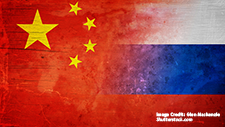Australia All Bark and No Bite on Taiwan

Larissa Stünkel
Introduction:
As Australia gears up for national elections, tensions surrounding the nation’s foreign policy trajectory are becoming unmistakable — particularly when it comes to Taiwan and its place in China–Australia tensions.
In a November 2021 parliamentary speech, Shadow Minister for Foreign Affairs Penny Wong rebuked Prime Minister Scott Morrison for his solid backing of Taiwan. She accused Morrison of using Taipei as a pawn to shore up electoral support and ‘desperately playing politics on China whenever he’s in trouble’. Now that Australia and Taiwan are seemingly edging closer — and celebrating the 40th anniversary of the opening of the Australian Office in Taipei — questions about Canberra’s willingness to deepen ties with Taiwanese President Tsai Ing-wen’s administration remain.
It took Defence Minister Peter Dutton a mere 24 hours to lash out against Wong, reprimanding her for not properly reflecting the seriousness of current geopolitical tensions between Canberra and Beijing. Wong had used her carefully crafted speech to also decry Dutton’s recent public commitment to defend Taiwan in the event of an attack. Her opposition Labor party has long maintained that it would reshuffle Australia’s foreign policy to emphasise international collaboration over antagonism.
Later that week, Dutton and Morrison both doubled down on standing by Taiwan, while also warning that Beijing’s provocations should not be underestimated. Taiwan’s Ministry of Foreign Affairs welcomed these developments with ‘sincere gratitude’, indicating that the self-governing island remains optimistic about Canberra’s support.
Related Publications
-
The Political Split at the Heart of Taiwan’s Struggle against Foreign Disinformation
Taiwan’s struggle against foreign disinformation and concerns about China’s impact on its 2024 election has received much international attention recently. This issue brief examines the domestic and international politics behind […]
-
ISDP Annual Report 2023
ISDP’s Annual Report for the year 2023. We look back on 2023, a year in which tensions and conflicts captured the strategic space in ISDP’s focus areas, making headlines around […]
-
China’s Approach to the Women, Peace and Security (WPS) Agenda: An Interview with YEONJU JUNG
In the current landscape of global politics, China’s rise and its foreign policy are frequent topics of discussion. Simultaneously, there’s a growing interest in studying gender and women’s issues within […]
-
Sino-Russian Relations, From Where – To Where
Since 1949, relations between the Soviet Union/Russia and China have been oscillating between formal military alliances and military border clashes. In the early phases, the cooperation was beneficial for both […]
-
An Interview with Professor Torbjörn Lodén: EU and U.S. Relations with China in Retrospect and Looking Ahead
The Institute for Security & Development Policy (ISDP) has for the past three years had the honor and privilege of Professor Torbjörn Lodén serving as its Head of the Stockholm […]




